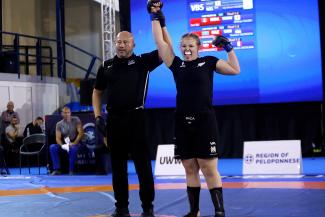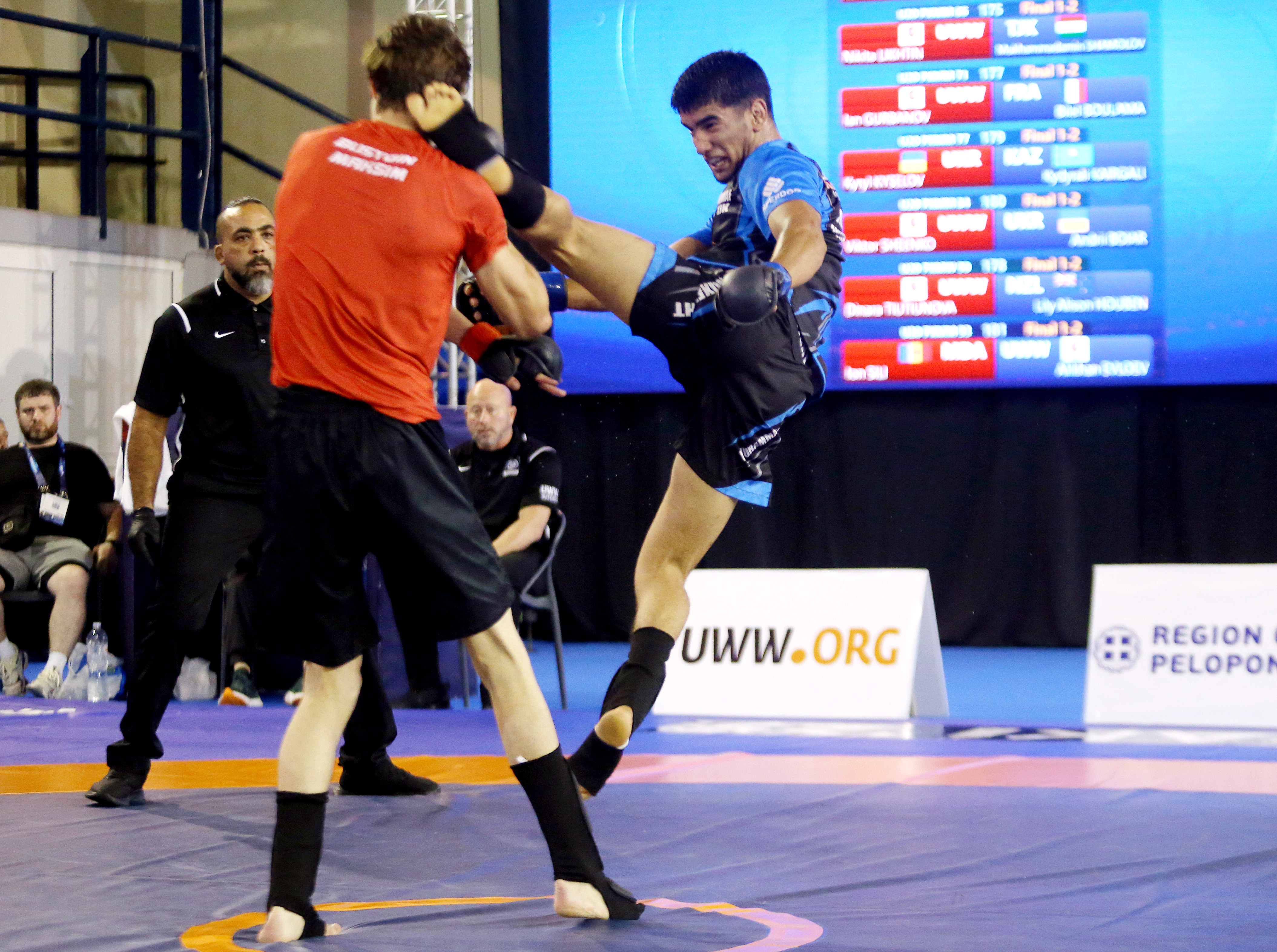Burundi hosts training camp, Beach Wrestling competition
Tuesday, March 7, 2023 - 14:13 By United World Wrestling Press

MABAYI, Burundi (March 7) --- Started in November 2021, during the post-covid period, the wrestling DNSS in Burundi experienced its terminal phase during the week of February 25 through March 04, 2023.
For this phase, the United World Wrestling sent two experts, Vincent AKA, Development Officer, and Angel Pineda Rodriguez, UWW training expert, to continue to support the Burundi wrestling federation for sustainable development.
This terminal phase began with a visit to the basic structures inside the country. This is how the two experts visited the clubs in Mabayi and Gihanga. This field visit made it possible to see that the local clubs have made an effort to constitute themselves since the formal architecture submitted by the national federation, namely a president, a treasurer, and a general secretary, all with the presence of a technician who supervises the wrestlers. Conversely, the need for more infrastructure is a limiting factor for their development. However, in Gihanga, hope remains insofar as there is a young center that would suffice to restore, like Gitega, who used his youth center and converted it into a wrestling room. The youth centers represent a real opportunity for setting up wrestling clubs (with wrestling mats made locally). As Angel Pineda, an expert of Cuban origin, pointed out, "This is what is done in Cuba, where we do with the means on board to find solutions to allow our wrestlers to practice in complete safety."
During this visit of the clubs from the inside, the clubs started to build their own Beach Wrestling arena, which represents an essential pillar for development. Because everything is easy to set up, Beach wrestling requires little means. This phase also made it possible to visit the partner schools for the wrestling for young girls project.
A meeting was organized with all club presidents and coaches was held to consolidate what already exists. During this meeting, the focus was on the theme "Project of a club structure." This made it possible to explain to the various participants the steps to develop his club and to approach the project approach to develop his wrestling club. The objective is to give tools to all those who want to move forward while understanding the concept of a club project.

It was also an opportunity to take stock with the federation of the impact of the DNSS while considering the prospects.
In parallel with the training of club leaders, to allow the best wrestlers to experience high intensive training, a training camp was organized at the Olympafrica Center in Kanyosha, which has become the reference center for the training of the national wrestling team.
Thanks to the renovation of the multipurpose hall by the Olympafrica Foundation, which allows the Burundian Wrestling Federation to bring together its best cadet, junior and senior wrestlers in Olympic wrestling. The wrestling mat donated by United World Wrestling entirely plays its role.
During this training camp, two wrestlers distinguished themselves. They are Niyonkuru Lynca GLORIA, in the junior category coming from the Gitegat club and Nishimwe YVES, also a junior from the Bururi club.
During this training camp, the two executives of the Burundian Wrestling Federation, Ntwari Patrice et Nduwayezu SILAS took advantage of the presence of the experts to deepen their notion in terms of planning, the process of training a top-level wrestler. This sharing of experience gives them the tools to continue the training and preparation of the best wrestlers in Burundi.
The Burundian wrestling federation organized a Beach Wrestling tournament to end this week full of activities in style. The presence of national television made it possible to enhance this event's scope and promote beach wrestling, which has tremendous opportunities ahead of it.
Finally, the President of the Burundian National Olympic Committee, Mrs. Lydia NSEKERA, really appreciated the DNSS of wrestling and added, "We will use the DNSS of wrestling as an example for the DNSS of other Sports."
Ella also mentioned the involvement of United World Wrestling in the development of wrestling through the vision of its President, Nenad Lalovic, to keep wrestling in the Olympic fold. "Today, wrestling is one of the Olympic disciplines which is involved in its development through its development programs and this can be seen on the ground," said Nsekera.


 Muhammadkabir NAZARZODA (TJK) won gold medal in the 62kg weight category. (Photo: United World Wrestling)
Muhammadkabir NAZARZODA (TJK) won gold medal in the 62kg weight category. (Photo: United World Wrestling)
Share your thoughts.
Comments